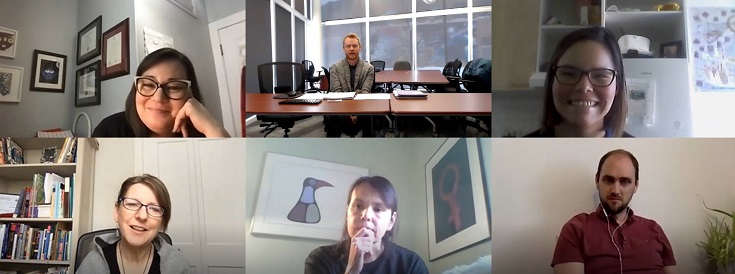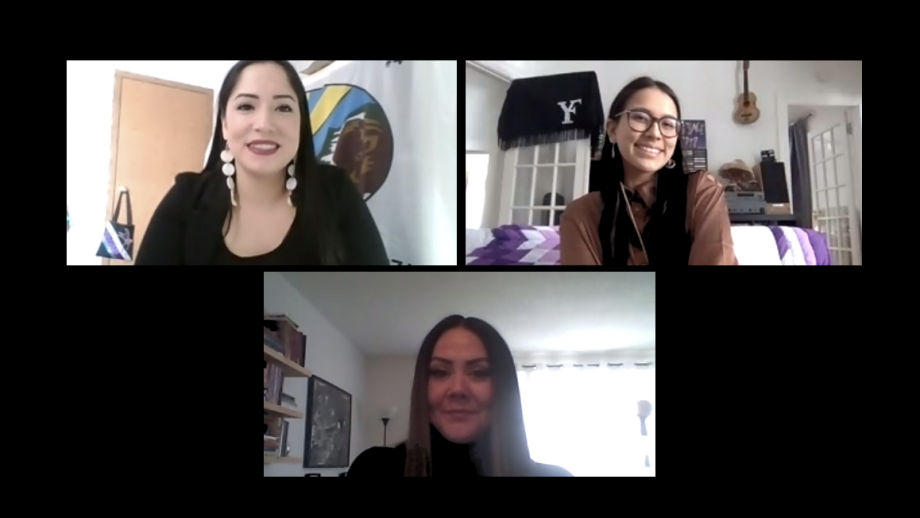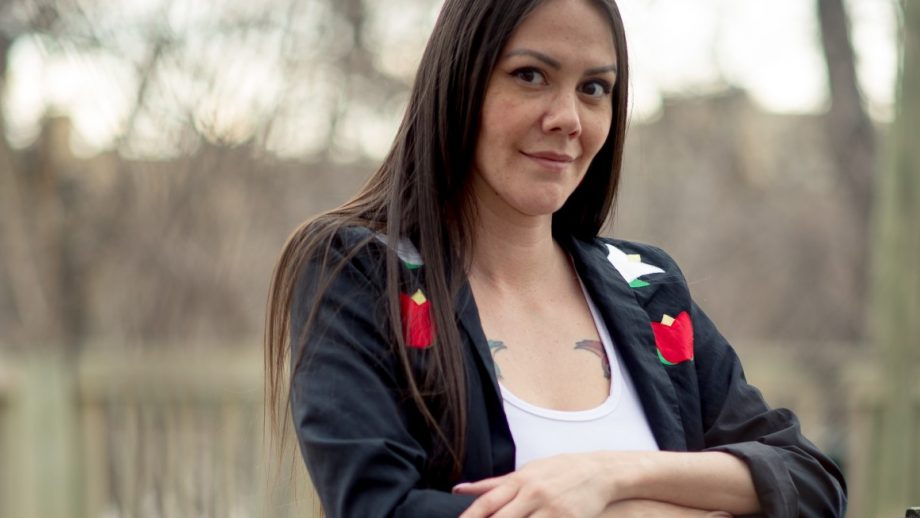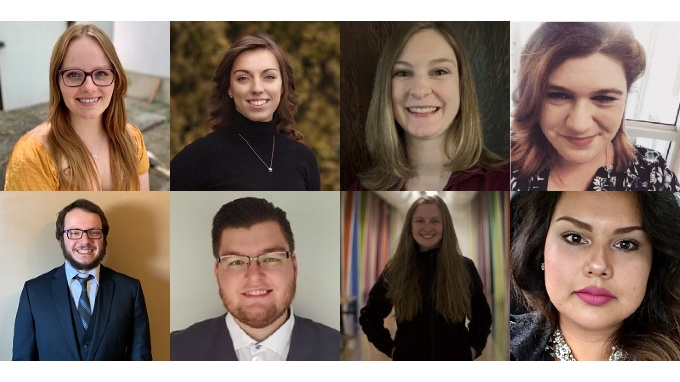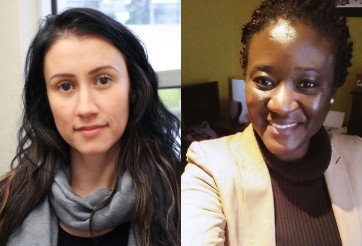Two University of Winnipeg Master of Arts in Indigenous Governance (MAIG) students, Maynan Robinson and Jennifer Meixner, were determined not to let COVID-19 stop them from achieving their academic goals. Unable to present in person, they defended their theses via video conference.
To accommodate all of the students working over the spring and summer months to complete their master’s degrees, the Faculty of Graduate Studies developed a new format for thesis examinations. This is one of many ways that departments across the university have responded to the need to adjust teaching and learning during the pandemic.
“Strong determination and dedicated efforts of Maynan and Jennifer to complete their masters theses and degrees during these turbulent times is truly commendable. It speaks to the resilience and academic excellence of MAIG graduates,” said Associate Professor Dr. Shailesh Shukla. “We also gratefully acknowledge the support of Graduate Studies, Indigenous Studies, and UWinnipeg colleagues and administration for their tireless support in helping our graduates succeed.”
Robinson and Meixner defended their theses in separate Zoom events in April, while Manitoba was in a province-wide state of emergency to reduce the spread of COVID-19.
Decolonizing Health Systems to Enable Participation
Robinson’s study, Decolonizing Health Systems to Enable Participation: A Manitoba Renal Program Case Study, was supervised by Dr. Lorena Fontaine with Dr. Jaime Cidro as examiner and Dr. Andre Hatala as external examiner.
“Presenting digitally offered me an environment that felt more comfortable and, therefore, more conducive to a calm and confident presentation,” said Robinson.
She explored the experiences of an Anishinaabe Elder and patient of the Manitoba Renal Program, the late Gerald Folster, who passed away in May 2020. Robinson reflected on her own experiences as an Indigenous health care provider in response to Folster’s experience. As her thesis is situated within the same health care environments which failed Brian Sinclair in 2008, she also examined the system’s response to the Sinclair Working Group’s 2017 recommendations.
“The most important learning outcome, which emerged organically from the thesis, is that there remains a pressing need to create health care environments that are explicitly anti-racist,” she said.
She is thankful to her family for the patience and help they provided throughout her studies, and is eternally grateful to Folster for sharing his experiences with her.
“Gerald offered invaluable insight as a dedicated community servant and leader, and as a patient across many different health care contexts,” said Robinson. “By agreeing to partner with me and sharing his gifts and wisdom, he gave me and my family a deeper gift than words can express.”
De-Colonizing Contemporary Criminal Justice
After years of balancing work, parenthood, and part-time studies, Jennifer Meixner would have preferred to present her thesis in person, but she was thrilled that meeting online enabled attendees to join from their own communities.
“For me, the highlight of presenting digitally was that it allowed Elder Myra Laramee to join us, to share prayers and lessons,” said Meixner.
Meixner’s study, De-Colonizing Contemporary Criminal Justice: Indigenous Innovations in Manitoba, presents local Indigenous voices on topics related to challenges and barriers in the Canadian justice system and ways to overcome them. Her thesis was supervised by Dr. Shailesh Shukla. Dr. Glenn Moulaison, Dr. Lorena Fontaine, Dr. Kevin Walby, and Elder Dr. Myra Laramee attended her virtual defense.
Meixner examined practical principles to strengthen and re-create innovations identified by participants with a goal of identifying more innovations, initiatives, and partnerships.
“We have incredible Indigenous leaders and change-makers at the community level responding to the needs of the people where systems continue to fail,” she said. “One significant learning that came out of the study is defining a local understanding of what Indigenous innovation is within the context of justice; an effort, program, initiative, or system created by local Indigenous peoples from an Indigenous lens, rooted in traditional Indigenous knowledges, worldview, and ways of doing to address needs as identified by the community.”
She is thankful to her thesis advisor Dr. Shailesh Shukla who always made time to encourage and motivate her, Elders Stan Lapierre and Myra Laramee who provided wisdom and guidance, her grandparents who inspired her to learn about Indigenous culture and systemic injustice, and her two children who showed love, understanding, and forgiveness during long hours of study.
After more than a decade working in the criminal justice system, she now works as a registered social worker at the Manitoba Advocate for Children and Youth.
“In this role, I have the opportunity to amplify the voices of young people and advocate for just systems in Manitoba.”

